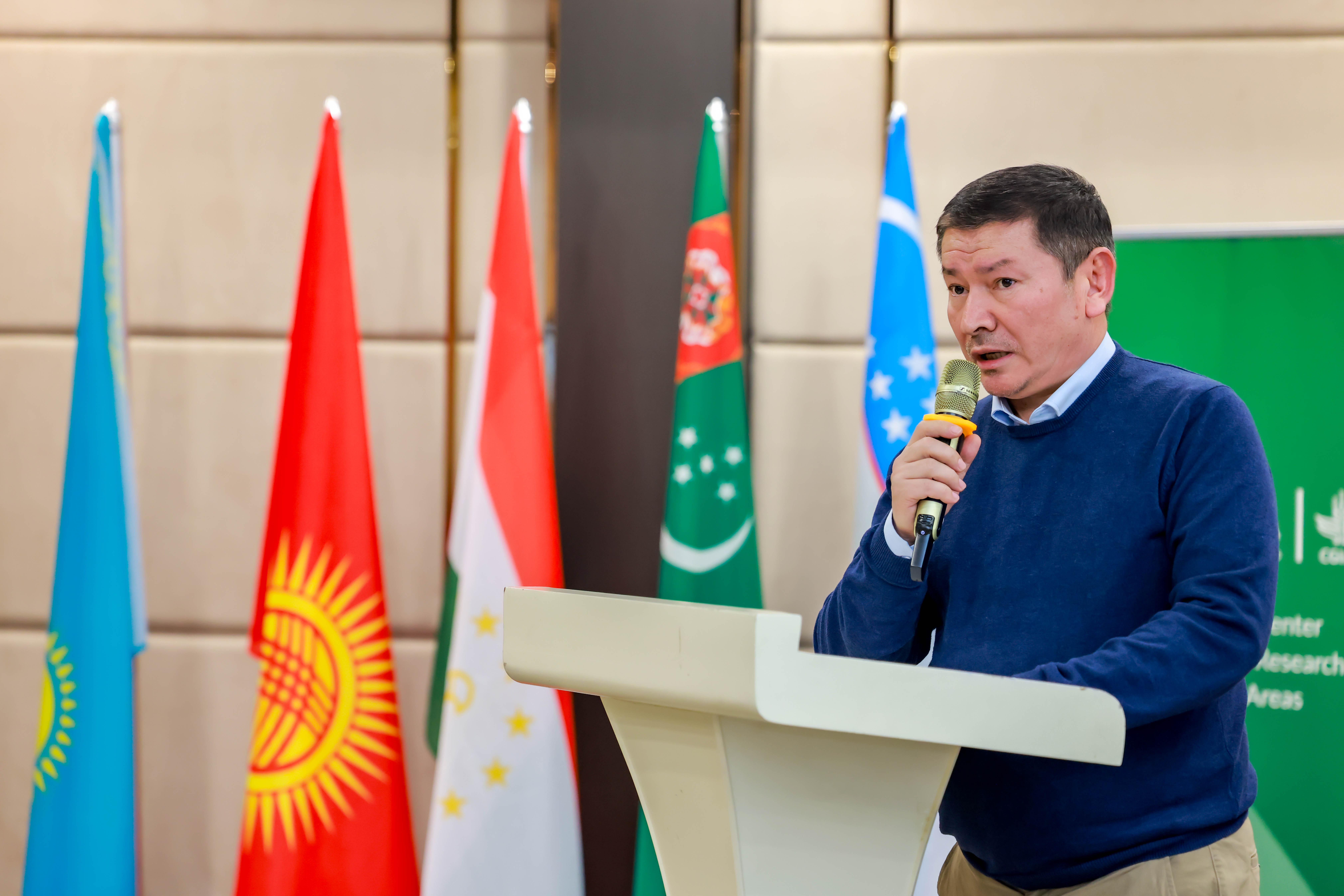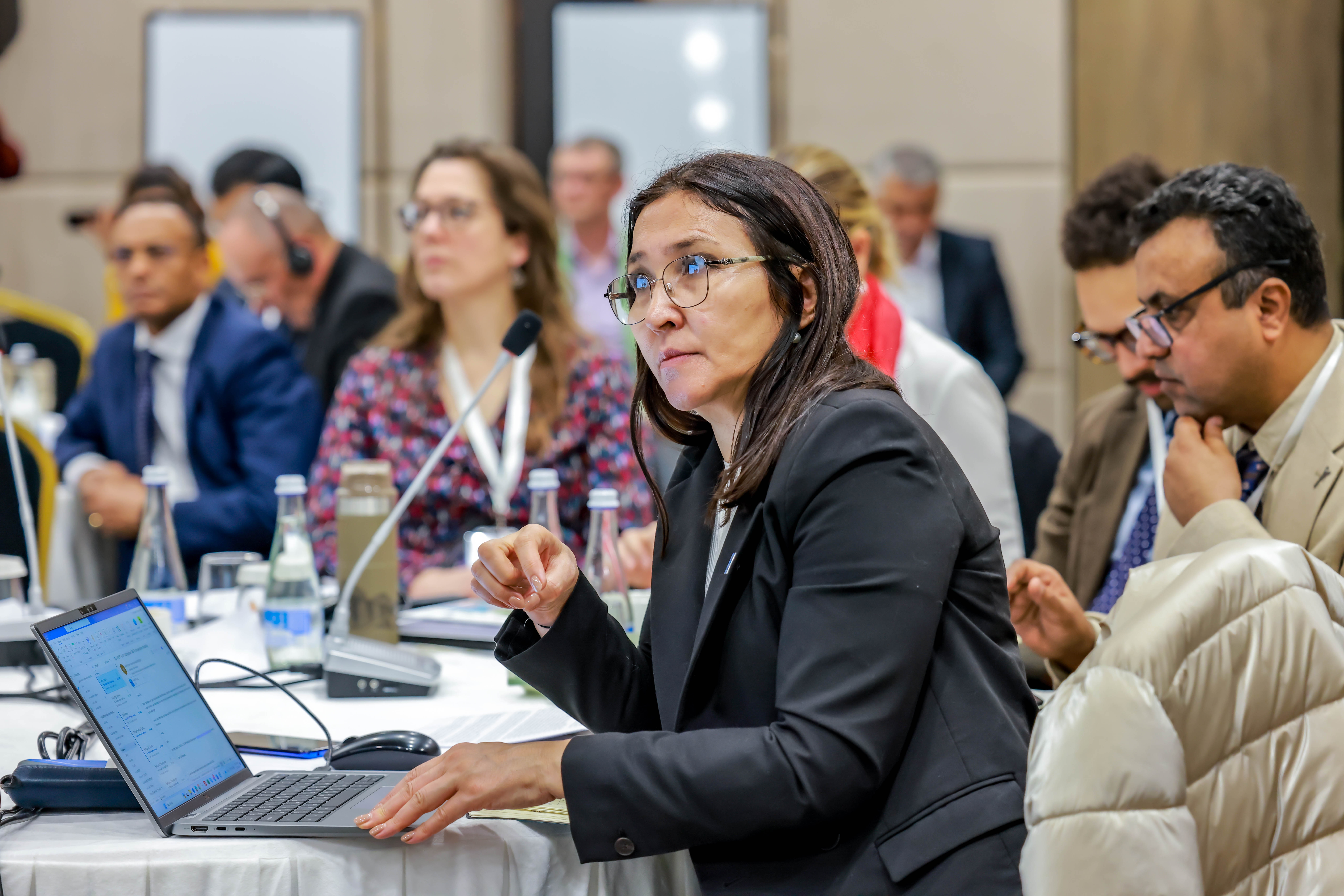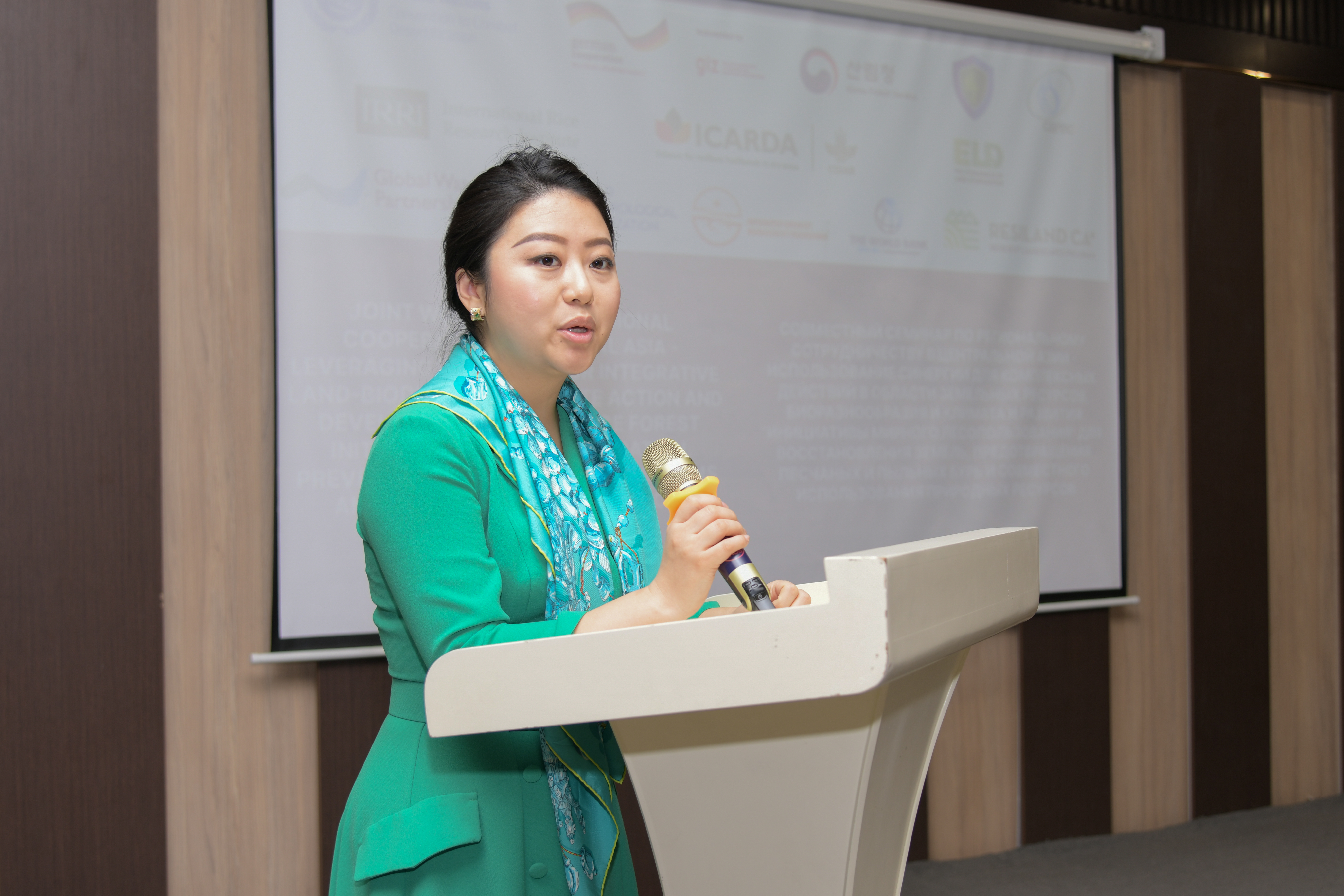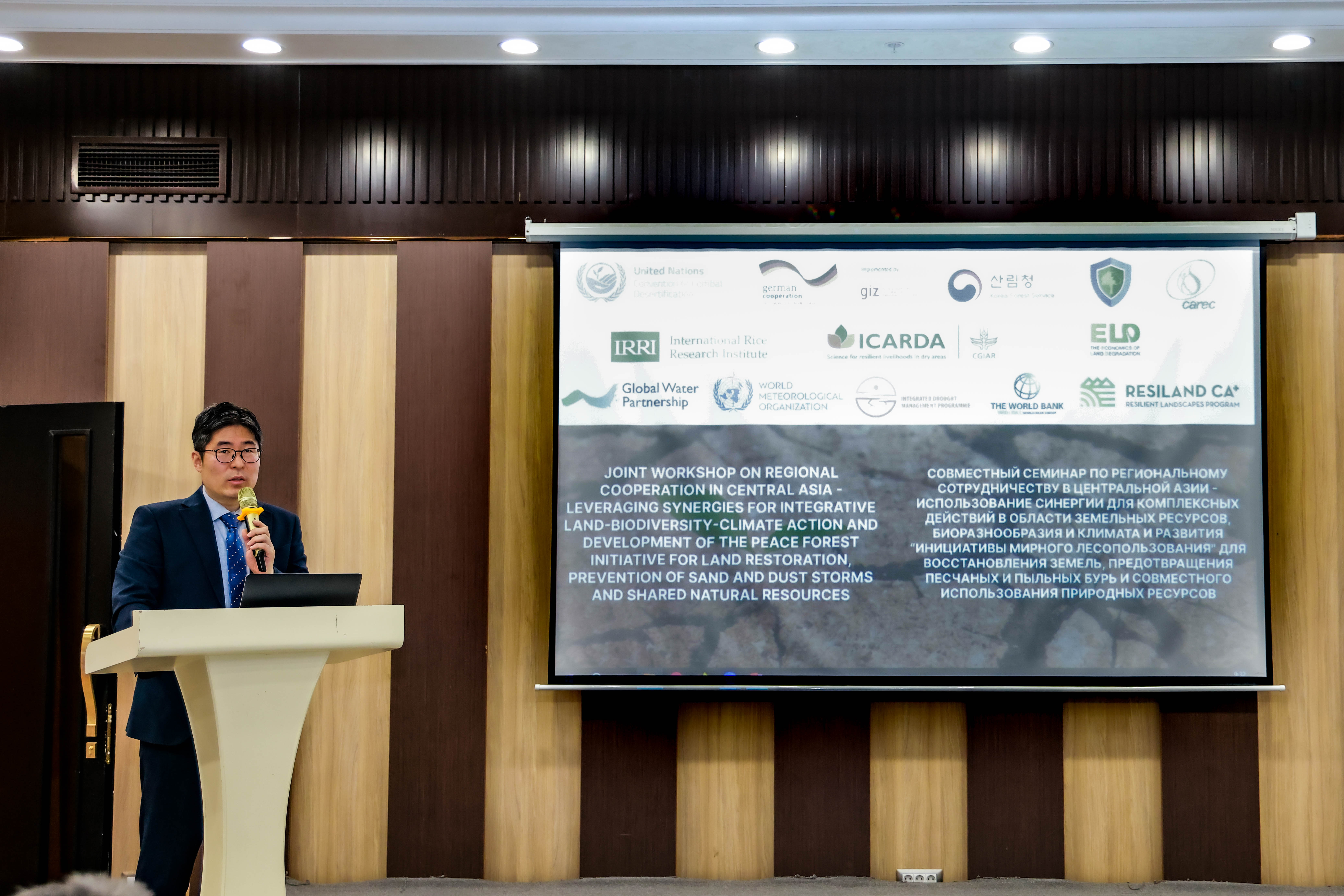
A joint workshop on regional cooperation in Central Asia, "Peaceful forest management initiatives for land restoration, prevention of sand and dust storms, and the sharing of natural resources", is being held in Tashkent from March 12 to 15. The event is dedicated to discussing comprehensive measures in the fields of land resources, biodiversity, and climate, with an emphasis on developing strategies and practical measures to identify the main sources of the occurrence and counteraction of SDS.

A seminar organized by the Global Mechanism of the United Nations Convention to Combat Desertification (UNCCD) in partnership with the Ministry of Ecology, Environmental Protection, and Climate Change of the Republic of Uzbekistan, the Regional Environmental Center for Central Asia (CAREC), the International Center for Agricultural Research in Drylands (ICARDA), the German Society for International Cooperation (GIZ), and the International Rice Research Institute (IRRI) was attended by representatives of five Central Asian countries: Kazakhstan, Kyrgyzstan, Tajikistan, Turkmenistan, and Uzbekistan.


For information: Recognizing the increased risk of droughts and sand and dust storms (PPB), the UNCCD country parties have taken decisions to counteract the negative effects of droughts and PPB. The UNCCD secretariat, in collaboration with key partners, provides methodological and technical assistance to participating countries in the implementation of these decisions to improve preparedness and resilience to droughts and SDS.

"According to the World Bank, dust makes up a significant part of the fine PM 2.5 particles, which makes it one of the main sources of air pollution, accounting for 36% of the total volume. It is necessary not only to respond to the consequences of sand and dust storms but also to actively identify their sources, developing a comprehensive neutralization strategy. Given the possible location of the sources of sand and dust storms outside the borders, joint efforts are required to successfully solve the problem. In this context, the seminar brings together exclusively scientists and experts focused on this problem to effectively discuss and develop practical solutions", Suna Park, Advisor to the Minister of Ecology and Director of the National Center for Green Transformation and Adaptation to Climate Change at the Ministry of Ecology, said in her welcoming speech.
During the workshop, it was noted that the UNCCD "Peaceful Forests" Initiative (PFI) will act as a catalyst for cross-border cooperation between countries, which will lead to the development of regional cross-border projects with potential financing.

"At this workshop, we are going to evaluate the ongoing efforts of our regional partners in the fight against PPB and land degradation. We strive to formulate a clear vision and action plan aimed at solving numerous environmental problems, including climate change, loss of biodiversity, and land degradation. This will allow us to achieve synergy and coherence in the actions of regional sectors and countries. The results of our discussions will form the basis for the development of an extensive regional rehabilitation project aimed at mitigating the effects of PPB and managing land degradation", said Utchang Kang, Programme Management Representative of the UNCCD Global Mechanism.
As a result of the workshop, the following objectives are expected to be achieved:
• Taking measures to neutralize land degradation and sustainable land management by international standards and financing mechanisms.
• Revision of targets for neutralizing land degradation, with an emphasis on mitigating the effects of SDS through mapping sources and reducing their impact.
• The creation of a regional platform and data center for the exchange of hydrometeorological data on drought monitoring and SDS.
• Development of a plan for implementing a regional strategy for drought risk management and mitigation, focusing on negative aspects such as SDS and socio-economic problems.
It is worth noting that sand and dust storms in Central Asia not only pose a serious problem for the climate and environment in the region but also significantly impact human health, agriculture, and the economy as a whole. More than 80% of the approximately 400 million hectares of Central Asia are covered by deserts and steppes, which, combined with climate change and prolonged droughts, represent a natural source of SDS. Irrational methods of irrigated agriculture and cattle grazing, mining, and other economic activities create conditions for the formation of anthropogenic sources of SDS.
Uzbekistan is actively implementing reforms to prevent dust storms and improve the environmental situation. So, from March 1, the practice of notifying the population in the event of dust storms and detecting cases of exceeding the established norm of the content of fine dispersed particles in the atmospheric air will be introduced. This important step is being implemented per the Decree of President Shavkat Mirziyoyev dated February 21 (No. PD-37), which approved the State Program for implementing the Strategy "Uzbekistan-2030" in 2024.
In addition, during the meeting of the OSCE Secretary General and the Ministers of Environmental Protection of Central Asian countries in Ashgabat, at the initiative of the President of Uzbekistan (during the 21st session of the Committee for the Review of the Implementation of the UN Convention (CRIC 21)), Minister of Ecology, Environmental Protection, and Climate Change A. Abdukhakimov proposed a suggestion to create The Regional Center for Climate Monitoring and the Regional Platform for Dust and Sand Storms. These measures are aimed at a more detailed study of climate change and the development of effective strategies to counter the negative effects of dust storms in the region.











